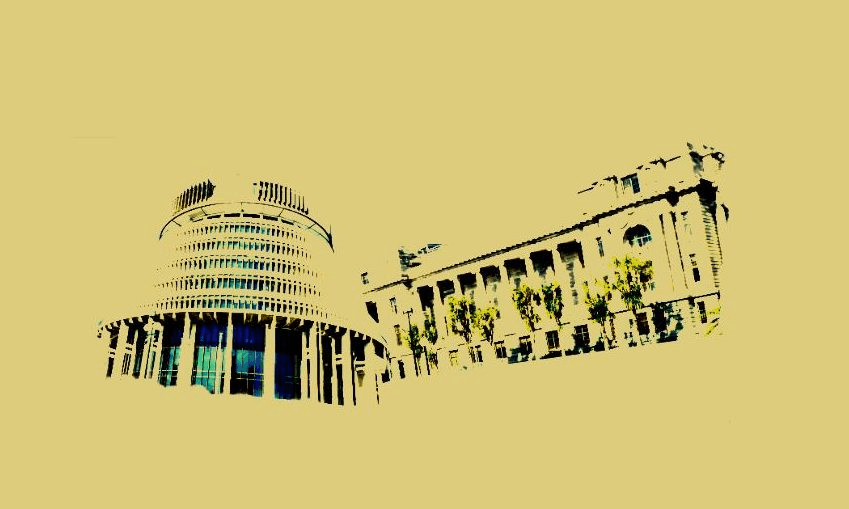Here’s a snapshot of a single day in parliament. A day where changes were made to laws that govern everything from the milk in your refrigerator to the speed you can drive your car, and to Netflix, and war crimes, and who tests your water. It was a big day.
The 52nd parliament is over. The legislature we’ve grown accustomed to seeing, with Jacinda Ardern in the prime minister’s seat and Winston Peters to her left, met for the final time yesterday and went out with a burst of new laws.
While you weren’t paying much attention to the work of the green chamber, 22 new laws were given royal assent over the past two weeks, with 19 approved by the sovereign’s representative yesterday alone.
In total, the Ardern-led coalition passed about 190 pieces of legislation. They also dealt with an extraordinary three years, including a natural disaster, terror attack and the calamity of Covid-19.
Instead of looking at the kind words and many more insults exchanged between the five parliamentary leaders at the close of parliament, here’s a list of laws given the governor general’s signature yesterday.
Remember to breathe.
The budget was approved. It’s the document that’s at the centre of the government’s Covid-19 economic response and will spend billions over the coming years to speed New Zealand’s recovery.
Separately, parliament passed a money bill to ensure the government has enough cash to deal with emergencies in the coming months. This is standard before an election.
On the subject of money, a Covid-19 response bill was approved allowing charges at managed isolation and quarantine facilities. The border fees will apply to anyone leaving New Zealand after August 10 or coming back only for a visit.
Learning a lesson from the coronavirus, ratepayers can now get rebates without travelling to a council office. That required a law.
There was also an expansive Covid-19 response bill that amended eight acts of parliament, making a number of administrative changes to the laws, including changes to reporting times for agencies and local governments. Some changes to tax schedules also happened here.
An equal pay bill was approved to make it easier to raise remuneration within female-dominated jobs. The Queen’s representative also approved a bill to increase pay for care and support workers, including mental health and addictions workers.
A law making all types of female genital mutilation illegal in New Zealand also was signed.
A number of things got restructured. One of the most significant was a complete replacement of the law that governs the public service. The State Sector Act, from 1988, was replaced by the Public Service Act. The new law makes it easier for public servants to move between departments and creates a stronger commissioner to oversee the public service. It’s a pretty significant change and you probably didn’t read a single story about it. Stories were written, but there were a few sex scandals burning when it first came up.
The dairy industry also got restructured, including some big changes to the regulation of Fonterra. The new law reflects that Fonterra’s effective monopoly in years past is over.
An overhaul of the New Zealand Transport Agency was approved, giving it a new structure and more powers to enforce and manage speed limits across the country.
The Te Ture Whenua Māori amendment was signed, which modifies succession, dispute resolution and some of the governance of Māori land.
There’s a new registration system in forestry for log traders.
An overhaul of the veterans’ system that increases supports.
A law with wide cross-party support was approved that changes the way municipalities can borrow for infrastructure, making it easier for them to finance building roads and sewage for new housing.
In the realm of house building, a law was endorsed that gives Kāinga Ora, formerly known as Housing New Zealand, new developer powers to build more housing as part of the Kiwibuild programme.
A new crown water regulator was created to oversee more rigorous screening and testing of local water supplies to avoid contamination. The case of Havelock North, where the water system became contaminated in 2016 and a vast swathe of the town got sick, came up frequently when parliament was debating this.
Winston Peters saw that changes were made to the country’s war crimes rules to comply with the International Criminal Court. The permanent court increased the variety of crimes it’s willing to hear cases about. Poison gas, biological weapons and blinding laser weapons are now war crimes in New Zealand that get sent to the ICC.
Slightly less seriously, the government expanded the movie classification system to on-demand video. This means Neon and Netflix now need to use movie-style warnings to let you know when there’s sex or violence coming your way.
That all happened yesterday.





